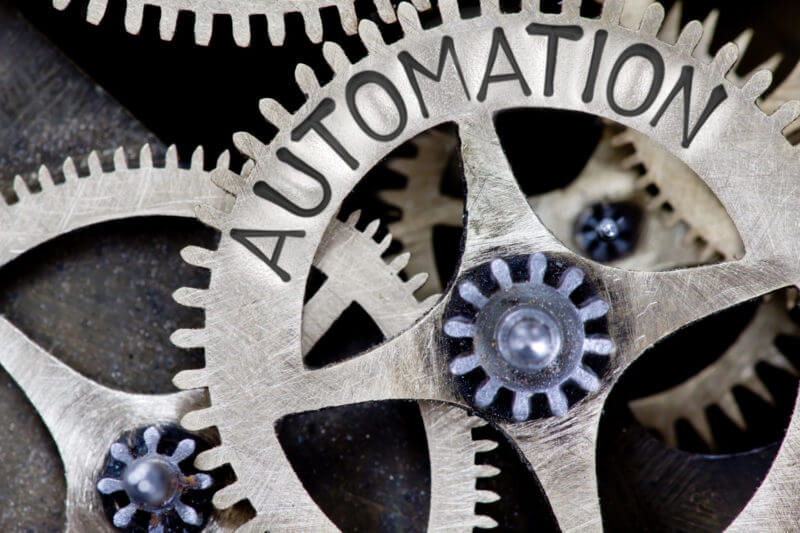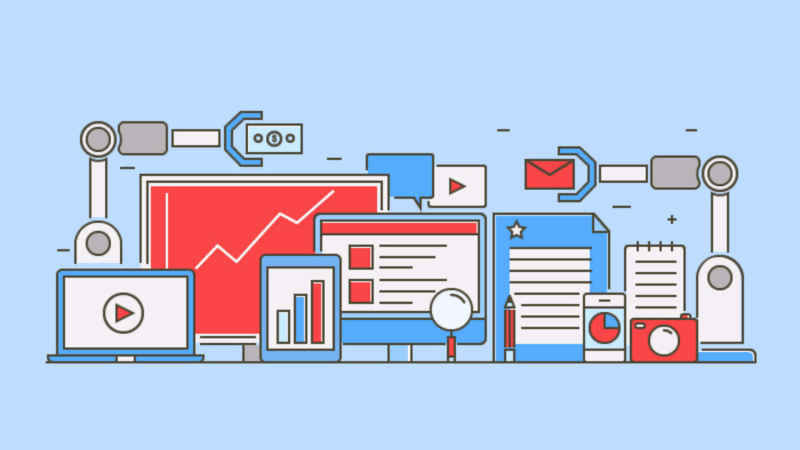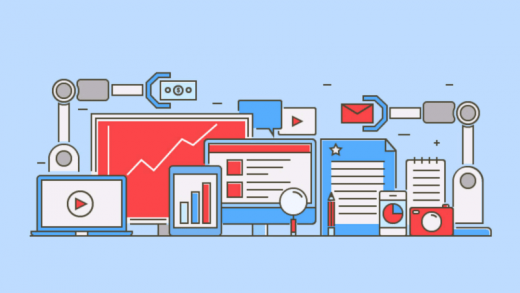Why more automation from Google Ads is good for tool makers and PPC careers
Marketers who question their future in an industry dominated by automation need to embrace change, says contributor Frederick Vallaeys. Here’s how one man and his company said “bring it on” and thrived.

We’re now all adjusting to the new interface of Google Ads. Change at what was formerly called AdWords is constant, and some of the biggest adaptations we’ll need to adjust to may still be in store.
Google keeps moving toward a more automated ad system under CEO Sundar Pichai, who says the future of Google is artificial intelligence.
As someone who builds PPC tools for a living, I’ve had to do some soul-searching to figure out if my work is likely to remain relevant in an industry that is seemingly moving toward full automation courtesy of the search engines.
The more I investigate automation features like Smart Shopping campaigns and changes to Google Ads like simplified targeting options for ads on mobile apps, I can’t help but come away encouraged that the work my team and other tool and script creators do will remain very valuable for a while to come.
For the many agencies and consultants who have questions about their future role in an industry dominated by automation, I’ll lay out some of my thoughts about our future prospects here.
Know your customer and you will thrive
One of the cool things about running a SaaS company is that I get to know a lot about my customers and their needs. One of the best lessons I learned when working at Google was that I’d have a good career as long as I stayed close to the customer.
The truth of this became very clear the day I decided to leave my team at Google to pursue a different path. Because I had heard directly from hundreds of customers what their biggest pain points were, I was able to start building scripts and tools that addressed an existing need in the market.
I didn’t waste time building a proof of concept or doing market research. I just got straight to building what people had wanted for a long time. My bet that they would pay for a solution was right, and our historical Quality Score (QS) Tracker was born.
Years later, Google also made historical QS data available. But our implementation of the solution was just different enough that many customers still wanted to pay for it, even after Google provided an alternative. I knew what my customers needed, and I built it. I didn’t build something trying to solve the same problems the Google Ads product team does, because my customers are different from theirs. I have fewer customers, but that’s actually an advantage.
I work with a fraction of the customers Google has, and so do you. Their needs are different from those of the masses, and that means that you can provide a service that excels in many little ways to make it go above and beyond what the ad engines will build when they’re aiming to please millions of advertisers. So long as you’re willing to continue to adapt and build what your customers ask, you can have a successful business.
Automation is growing our market
The assumption I often hear from people I speak with is that Google and Bing’s path toward automation will make agencies, consultants and PPC pros in general redundant.
Assuming that in the long run, most PPC tasks will be fully automated, we can start shifting to new roles where humans add a lot of value.
But regardless of what the long-term future holds, Google’s automation, including those announced at Google Marketing Live, appear at some level to address a short-term problem: small, unsavvy advertisers have a hard time getting value from the very powerful (and sometimes complex) systems built by Google Ads.
Smart Campaigns are an evolution of AdWords Express to help small local businesses advertise. Smart Shopping Campaigns are an easy way to get a great return on advertising spend (ROAS) for retailers who haven’t figured out how to do this through smart structures, query fencing and granular bid management.
Automated bidding to Maximize Clicks is useful for advertisers who can’t figure out how to track conversions. At the risk of stereotyping, these are all scenarios involving cautious new advertisers, the ones unlikely to have a budget to hire a very experienced PPC professional to help do things the right way.
I see this automation as a way to transition advertisers who might have soured on PPC into successful advertisers who want more and bigger results. Once these advertisers are sold on the fact that search marketing works (thanks to automation from Google) and delivers great results, they are more likely to be a good client for an agency.
In the short term, this means agencies will have more prospective customers willing to pay their fees, and as tool creators, we will find ways to help make the lives of these agencies easier as they work on scaling their operations.

Custom automation is what clients want
While in the short term, automation may serve to bring new advertisers online, Google’s vision, as laid out by CEO Sundar Pichai, shows the company’s future is artificial intelligence. This includes using machine learning to drive amazing results for every advertiser, even the big ones who already do well, thanks in part to the resources they dedicate to managing complexity.
This July, I spent some time at the Google Cloud Next conference in San Francisco, and artificial intelligence and machine learning were a consistent theme. Even JamBoard, a collaborative whiteboard, uses these technologies to turn a person’s doodles on a whiteboard into pretty graphics. But what was also evident from the many vendors offering ways for companies to start working with machine learning is that there is an appetite for customization of these systems.
While Google is amazing at predicting the likely conversion rate and value from factors like the device, the location, the time and many other factors, big advertisers want to ensure their own business data is also used in regressions or more sophisticated analyses. There are unique elements to any business that may influence the probability of a conversion.
I like the example of the ski resort that will sell more ski passes if there is fresh snow on the mountain. Does Google’s machine learning system account for the snowpack at Vail when it makes its predictions? Does it look at how many inches of snow recently fell? Both are likely scenarios, but the biggest factor that matters may be predicting ski pass sales. Having access to machine learning to make these predictions and then having a way to refine bids and budgets based on the predictions would be very helpful.
Agencies are starting to get these types of requests from their clients, and rather than building that expertise and the tools in-house, which may be too radical a shift from their current business, tools can help connect their clients with the insights they seek. At my company, we recently built a custom machine learning model that advertisers can use to set better geo bids, a first step in offering each client their own unique machine learning model to improve performance.
Automation is good, but machine learning is overkill
Google is a company that shoots for the moon, and so they appear to be focused on making the biggest innovations in artificial intelligence. While that is sure to push what we can achieve with online ads, sometimes the automation we really need is much simpler.
Case in point: One of our most popular scripts is one that pauses an account after it has reached a threshold for a monthly account budget. There’s nothing complicated about the concept, yet achieving the desired result without automation would be extremely tedious. A script takes a few minutes to set up and then handles it from there.
We are launching a new free script soon to automate adding negative placements when ads on mobile apps aren’t performing well. This is a direct response to a change in Google Ads that removes the ability to exclude all mobile app placements. Andrew Goodman, a long-time industry veteran, asked me if I had a script for that (See, I am close to my customers!) and sure enough, it’s something useful that we have committed to building.
Conclusion
I’ve written and spoken a lot about the future of our roles in PPC in an increasingly automated world, but the questions about how long we have until our days are numbered reached a new climax after Google’s annual Ads launch at Google Marketing Live. That got me thinking about the topic again, and I’m confident that many opportunities remain.
When you started working in PPC, you knew change was a constant, so if you’re willing to keep up with and take advantage of those changes, I guarantee you’ll discover plenty of opportunities to make yourself invaluable to your customers.
Opinions expressed in this article are those of the guest author and not necessarily Marketing Land. Staff authors are listed here.
Marketing Land – Internet Marketing News, Strategies & Tips
(36)



